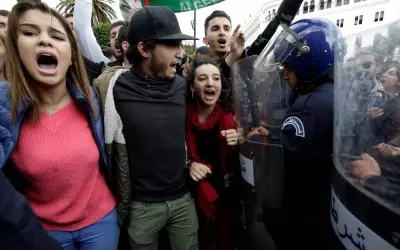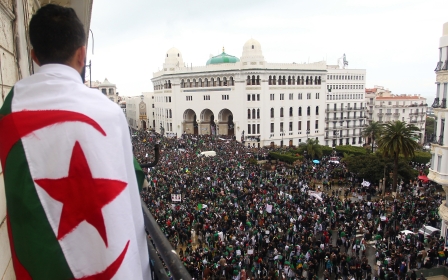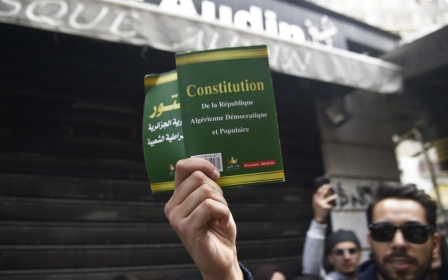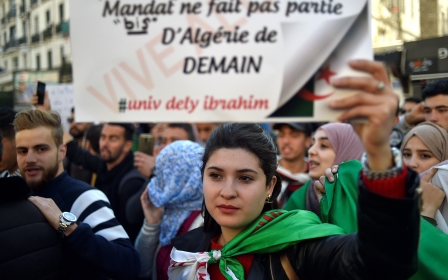Algeria's Abdelaziz Bouteflika 'to step down as president before 28 April'
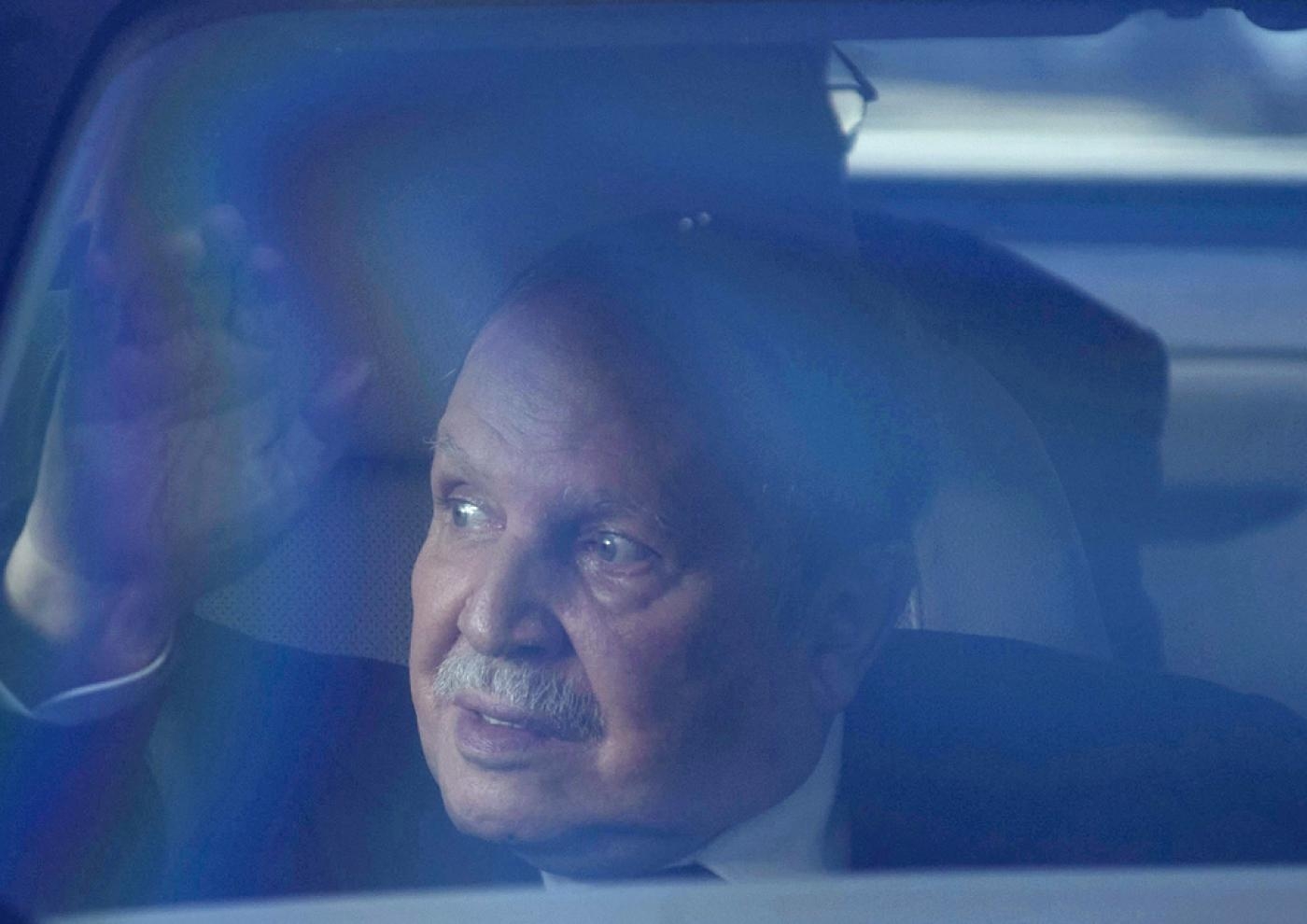
Abdelaziz Bouteflika will step down as Algeria's president before the end of his current term, the state-run Algeria Press Service (APS) has reported, after weeks of mass protests calling for the ailing leader's resignation.
Bouteflika will step down "before 28 April," APS reported on Monday, citing a statement from the president's office.
That date marks the end of his current presidential term.
Between now and 28 April, Bouteflika will undertake "important measures to ensure that state institutions continue to function during the transition period," the statement from his office read.
The news agency did not specify the exact date Bouteflika intends to leave office, nor did it elaborate on the measures he plans to enact to ensure a smooth political transition.
New MEE newsletter: Jerusalem Dispatch
Sign up to get the latest insights and analysis on Israel-Palestine, alongside Turkey Unpacked and other MEE newsletters
The announcement was greeted by the beeping of some car horns in Algiers, but there was little sign of euphoria as people insisted the whole ruling system must change, the AFP news agency reported.
"Bouteflika quits and then what happens?" asked Sofiane, a 25-year-old doctor.
The Movement for the Society of Peace, a moderate Islamist party, said "the president's resignation... without reforms could end up conspiring against the popular movement".
"The move is just a way of keeping the political system with all the wrong turns that have led us to the current situation," it said.
Mass protests
Hundreds of thousands of Algerians have protested across the country since February after the president originally said he would run for a fifth term.
In response to the demonstrations, Bouteflika announced on 11 March that he would not seek re-election.
"There will not be a fifth mandate," he said at the time, adding that he would postpone the elections, which initially were set for 18 April.
But the president's decision to forego another term did not appease the protesters, who have continued to take to the streets in the capital Algiers and across the country.
Many have said they feared Bouteflika's decision to postpone the elections until after a national conference comes up with a plan for Algeria's political transition is actually a ploy to extend his rule.
On Friday, Reuters reported that about one million people demonstrated in Algiers, once again calling for Bouteflika to resign.
The mass protest came just days after the head of the Algerian army said Bouteflika should be declared unfit to stay on as president.
Lieutenant General Ahmed Gaed Salah, the army's chief of staff, made a proposal on Tuesday for the constitutional council to declare Bouteflika unfit for office, a move provided for under Article 102 of the country's charter.
Article 102 of the Algerian constitution
+ Show - HideArticle 102 is a clause in the Algerian constitution that allows for the removal of the president if they are deemed unfit to rule because of medical reasons.
The article has to be unanimously invoked by 12 members of the Constitutional Council.
If the Constitutional Council finds a reason to impeach the president, then parliament will declare the president incapacitated by 2/3 majority. Then the head of the upper house of the Algerian parliament will become interim head of state for 45 days.
If the reason for the president's impeachment continues after 45 days, then the head of Senate continues ruling Algeria for another 90 days, after which presidential elections are organised.
Bouteflika has rarely appeared in public in recent years after he suffered a stroke in 2013.
Several of his supporters, including key Algerian businesspeople, union leaders and members of his ruling National Liberation Front (FLN) Party have also joined the protesters in demanding Bouteflika resignation.
Under the constitution, the chairman of parliament's upper house, Abdelkader Bensalah, would serve as caretaker president for at least 45 days once Bouteflika stepped down.
The idea of Bouteflika's inner circle retaining their grip on power through a substitute leader has drawn short shrift from protesters dealing with high unemployment and economic hardships.
Young people have made up a key part of the demonstrations in a country where half the population is under 30.
Middle East Eye delivers independent and unrivalled coverage and analysis of the Middle East, North Africa and beyond. To learn more about republishing this content and the associated fees, please fill out this form. More about MEE can be found here.


